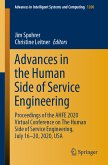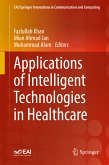This book presents interdisciplinary research in software engineering with applications for the social sector. The author focuses on software applications that are used for social good and that serve the needs of society. The author aims to bridge the knowledge gap between requirement engineers, industry, and users in order to help identify a diverse range of needs in the social sector (taking into account user crowd diversity in terms of technological competencies, geography, demographics, and behavioral and psychographic aspects). The book provides rigorous empirical studies and validates solutions that serve as a guide to the software engineering community, researchers, graduate students, and teachers.
- Provides interdisciplinary research in software engineering and the needs of the social sector, helping to increase success rates of society focused startups and applications
- Ideal for social entrepreneurs who can use the book for doing customer development with diverse users
- Establishes a new research line of social sector requirement engineering, taking into account user age, language, ability, and access
Dieser Download kann aus rechtlichen Gründen nur mit Rechnungsadresse in A, B, BG, CY, CZ, D, DK, EW, E, FIN, F, GR, HR, H, IRL, I, LT, L, LR, M, NL, PL, P, R, S, SLO, SK ausgeliefert werden.









